
This NCI-funded educational program will train cancer care clinicians over two years to develop, implement, and maintain comprehensive psychosocial distress screening programs.

This NCI-funded educational program will train cancer care clinicians over two years to develop, implement, and maintain comprehensive psychosocial distress screening programs.

Erin W. Hofstatter, MD, assistant professor of medicine (medical oncology), co-director, Genetic Counseling Program, Yale Cancer Center, explains why it is important for breast cancer survivors to maintain a healthy lifestyle after their treatment

Debbie's Dream Foundation is hosting a free webinar on nutrition and clinical trials

Tara Sanft, MD, assistant professor of medicine (medical oncology), medical director, Adult Survivorship, Yale Cancer Center Survivorship Clinic, discusses the benefits of providing survivorship care to patients with cancer.

Two recent studies outline the importance of nutrition in preventing obesity-related cancers as well as the potential benefits of a nutrition education intervention in preventing breast cancer recurrence.
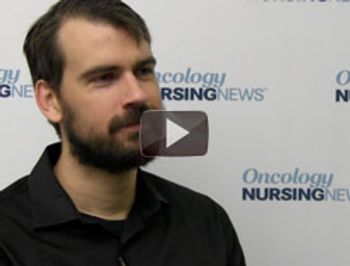
Bart C. De Jonghe, PhD, assistant professor, School of Nursing, University of Pennsylvania, discusses obesity and cancer prognosis, discusses the connections between nutrition and cancer.

Findings from a long-term analysis of the Women's Intervention Nutrition Study (WINS) show that the deaths of women with hormone receptor–negative breast cancers were reduced by up to 54% when they followed a program to reduce their dietary fat intake, which could provide benefit for patients with triple-negative breast cancer.
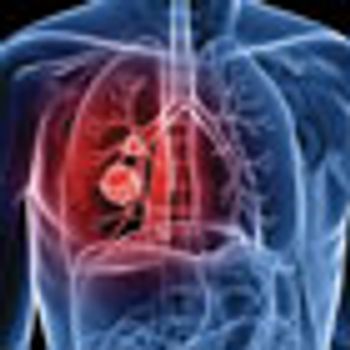
The Centers for Medicare & Medicaid Services (CMS) announced that the agency plans to cover lung cancer screening using low-dose computed tomography (LDCT) for certain former and current smokers, a decision that could affect an estimated 4 million people.

When trained, advanced practice nurses followed up written heart screening guidelines with telephone calls to survivors of childhood cancers, screening uptake more than doubled among those who received the telephone-based counseling.

Michelle Farnan, RN, MSN, OCN, palliative care nurse coordinator, Penn State Hershey Medical Center, discusses the impact of a palliative care screening tool for inpatient oncology patients.

The Colon Cancer Alliance will be awarding 20 individuals with $300 each to help offset the cost of receiving a colonoscopy.

Electronic health records (EHR), which have been found to improve care and management of multiple chronic diseases in older adults, could also be customized to improve cancer screening rates in this population by integrating recommended screening protocols based on age, family history and other environmental, occupational, and behavioral risk factors (ie, smoking and alcohol use).
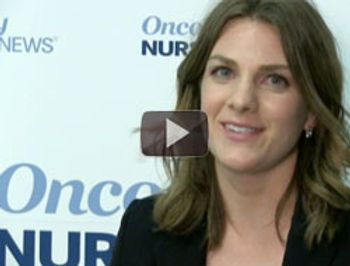
Carol Cannon, RN, BSN, OCN, Oncology Program Specialist, Nurse Oncology Education Program, Austin, Texas, discusses the ONS Get Up, Get Moving Campaign.

Many studies have found a link between regular exercise and a lower risk of being diagnosed with breast cancer or breast cancer coming back (recurrence). As a result, the American Cancer Society and many doctors recommend that women who've been diagnosed with breast cancer, as well as those who haven't, exercise regularly – about 4 to 5 hours per week at a moderate intensity level. (Brisk walking is considered moderate intensity exercise.)

My eye doctor recently added an extra wide chair in his waiting room, which got me thinking about the prevalence of obesity.

When depression is identified, it often goes untreated.

Endometrial cancer is the most common gynecologic cancer and the fourth most common cancer.
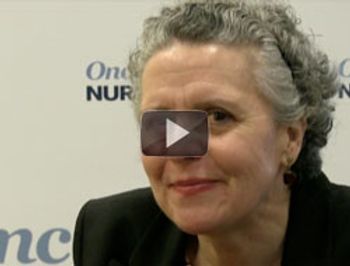
Deirdre Kiely, MS, MPA, RN, ANP, nurse practitioner, Perlmutter Cancer Center at NYU Langone Medical Center, discusses some of the challenges of getting breast cancer patients to exercise routinely.

A new study has found that postmenopausal women who undertook regular physical activity equivalent to at least 4 hours of walking per week in the last 4 years had a lower risk for invasive breast cancer compared with women who exercised less during those 4 years.

When the US Preventive Services Task Force (USPSTF) recommended last year that asymptomatic, high-risk individuals should receive annual screening for lung cancer with low-dose computed tomography (LDCT), it made a healthy decision for the American population.

Researchers at the National Cancer Institute (NCI) have found that a negative HPV screening test is better at evaluating cervical cancer risk than a negative Pap test.

Deirdre Kiely, MS, MPA, RN, ANP, nurse practitioner, Perlmutter Cancer Center at NYU Langone Medical Center, discusses the results of a breast cancer lifestyle intervention study.

For patients receiving treatment for oral and head and neck cancer, maintaining adequate nutrition is an ongoing challenge.

Spending all day sitting on the couch to binge watch your favorite television show not only isn't great for your waistline, recent research suggests it could increase your risk for cancer.

Two recently published clinical studies demonstrated a strong association between higher levels of vitamin D and improved outcomes among patients with various cancers.

A new study published today online in CANCER shows that the majority of breast cancer patients did not meet national physical activity guidelines after they were diagnosed
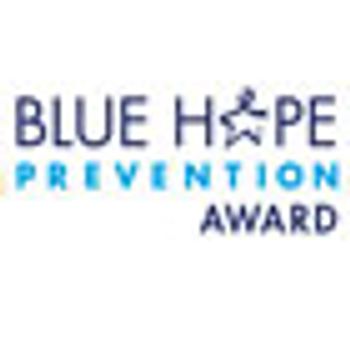
Colon cancer remains the second leading cause of cancer death in the United States and only 60% of Americans report being up-to-date with the recommended screening guidelines.

Persistent infection with specific subtypes of human papillomavirus (HPV) has been definitively linked to progression to cervical cancer.

A noninvasive stool DNA test may be a new option to increase rates of colorectal cancer screening, proving more sensitive in identifying colon cancer, advanced precancerous lesions, and polyps than currently available fecal immunochemical testing (FIT).

Attendees at the 2014 ONS Annual Congress were encouraged to "Get Up, Get Moving" by recommending physical activity to improve patient outcomes.